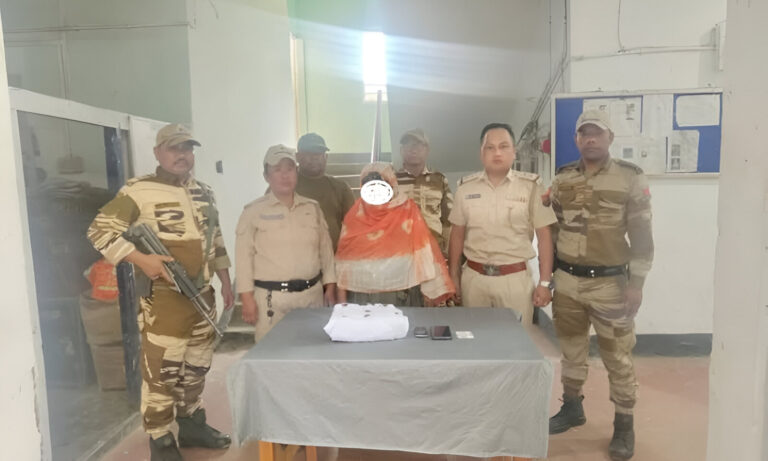Manipur’s War Against Poppy Plantations: A Bold Move for a Better Tomorrow
Summary
Authorities in Manipur recently destroyed 14 acres of illegal poppy plantations in Kangpokpi district as part of a broader crackdown on illicit activities tied to drug production. This action highlights the state’s determination to combat the drug menace and address its cascading social and environmental consequences. Collaborative efforts by law enforcement and community stakeholders signal a pivotal step toward restoring ecological balance and social harmony in the region.
Long-Form Article
The Hidden Battle: Drugs, Poppy Cultivation, and Manipur
Let’s take a moment to talk about something that doesn’t often make the headlines but affects countless lives: illegal poppy cultivation. It’s a silent epidemic, particularly in places like Manipur, where lush green hills often mask the darker realities of drug production. Recently, in a bold move, authorities in Kangpokpi district razed 14 acres of poppy plantations. While this might sound like just another law enforcement operation, it’s a part of a much larger narrative.
So, what’s really going on here? This isn’t just about crops; it’s about breaking a chain of illegal drug production that feeds addiction and crime, not just locally but across borders. And the stakes couldn’t be higher.
Why Poppy Cultivation Persists
First, let’s address the elephant in the room: Why does poppy cultivation persist despite repeated crackdowns? The answer lies in a complex mix of poverty, lack of alternative livelihoods, and high demand for opiates. For many farmers, growing poppies isn’t a choice—it’s a survival strategy. They’re stuck in a vicious cycle, balancing the risk of legal consequences against the immediate need to feed their families.
Unfortunately, this cycle perpetuates a host of problems. Beyond fueling the drug trade, poppy farming devastates local ecosystems. The cultivation often involves deforestation and the overuse of chemical fertilizers, leaving the land barren and water sources contaminated. It’s a lose-lose situation—for the environment and the communities relying on it.
Manipur’s Crackdown: A Step in the Right Direction
The recent destruction of 14 acres of poppy plantations in Kangpokpi is part of Manipur’s ongoing “War on Drugs” campaign. Spearheaded by the state government, this initiative aims to eradicate poppy cultivation and dismantle the networks that profit from it. But what sets this particular operation apart? It’s the growing involvement of local communities.
Law enforcement agencies aren’t working in isolation. By collaborating with village leaders and activists, they’re turning the fight against drugs into a collective effort. This partnership not only boosts the effectiveness of crackdowns but also sends a powerful message: The community stands united against this menace.
The Environmental Angle: Restoring Balance
Did you know that poppy cultivation contributes to deforestation and soil degradation? It’s easy to overlook the environmental toll amidst the more obvious social consequences. Yet, this aspect is crucial. By clearing poppy plantations, authorities are also creating opportunities for reforestation and sustainable agriculture.
Imagine replacing barren, over-farmed hills with thriving forests or fields of diverse crops. That’s the vision driving Manipur’s broader anti-drug strategy. And it’s not just about aesthetics; it’s about ensuring that future generations inherit a land capable of sustaining life and livelihoods.
Challenges Along the Way
Of course, this isn’t an easy fight. Eradicating poppy plantations is only the first step. The real challenge lies in offering farmers viable alternatives. Think about it: If you take away someone’s primary source of income without providing a backup plan, aren’t you setting them up to fail? That’s why initiatives like crop substitution programs are so crucial.
However, implementing these programs is easier said than done. Limited funding, logistical hurdles, and resistance from entrenched interests often slow progress. But as the recent operation in Kangpokpi shows, the tide is turning. The more stakeholders join forces, the more achievable these goals become.
The Human Element: Stories of Change
Let’s pause and talk about the people behind the headlines. Who are these farmers, and what drives them to grow poppies despite the risks? Their stories are often tales of resilience and desperation.
Take, for instance, a hypothetical farmer named Lamtin. He’s a father of four, struggling to make ends meet on a small plot of land. Traditional crops barely cover his family’s needs, let alone school fees or medical bills. Poppy cultivation offers a quick, albeit dangerous, way out. When authorities approach Lamtin with the promise of financial support for switching to legal crops, he’s hesitant but willing to try. It’s these individual decisions that collectively drive change.
The Bigger Picture: National and Global Implications
Why should you, someone far removed from Kangpokpi, care about poppy plantations in Manipur? Here’s why: The drug trade isn’t confined to one region. The opiates produced from these plantations often find their way into international markets, fueling addiction crises worldwide. By tackling the problem at its source, Manipur’s efforts have a ripple effect, benefiting communities far beyond its borders.
Moreover, this crackdown aligns with India’s broader goals of combating organized crime and ensuring national security. Drug trafficking often goes hand in hand with other illicit activities, from money laundering to terrorism. In this sense, every acre of poppy destroyed is a step toward a safer, more stable future.
What Needs to Happen Next
So, where do we go from here? While the recent operation is a significant milestone, it’s just one piece of the puzzle. To ensure lasting change, several measures are essential:
- Expand Alternative Livelihood Programs: Farmers need more than promises; they need tangible support, from seeds and tools to training and market access.
- Strengthen Community Policing: Engaging local leaders and residents is key to identifying and uprooting illegal plantations before they spread.
- Enhance Education and Awareness: Many farmers are unaware of the long-term consequences of poppy cultivation. Awareness campaigns can bridge this gap.
- Invest in Rehabilitation: Tackling addiction is as crucial as curbing supply. More rehabilitation centers and support networks are needed to help users recover.
- Foster International Collaboration: The drug trade is a global issue, requiring coordinated efforts across borders.
A Message of Hope
Amidst the challenges, there’s plenty of reason for optimism. The destruction of poppy plantations in Kangpokpi isn’t just a victory for law enforcement; it’s a testament to what’s possible when communities, governments, and individuals come together. It’s a reminder that no problem is insurmountable, no matter how entrenched it might seem.
As Manipur continues its fight against the drug menace, it’s setting an example for other regions grappling with similar issues. The road ahead may be long, but with persistence and collaboration, a brighter, drug-free future is well within reach.
FAQs
- Why is poppy cultivation prevalent in Manipur? Poppy cultivation persists due to poverty, lack of alternative livelihoods, and high demand for opiates.
- What are the environmental impacts of poppy farming? It leads to deforestation, soil degradation, and water contamination, harming local ecosystems.
- How does Manipur’s “War on Drugs” work? The campaign involves law enforcement crackdowns, community engagement, and initiatives to promote sustainable agriculture.
- What challenges do authorities face in eradicating poppy plantations? Key challenges include resistance from entrenched interests, limited resources, and the need for alternative income sources for farmers.
- How can individuals support Manipur’s anti-drug efforts? Spread awareness, support NGOs working in the region, and advocate for policies promoting sustainable development.



